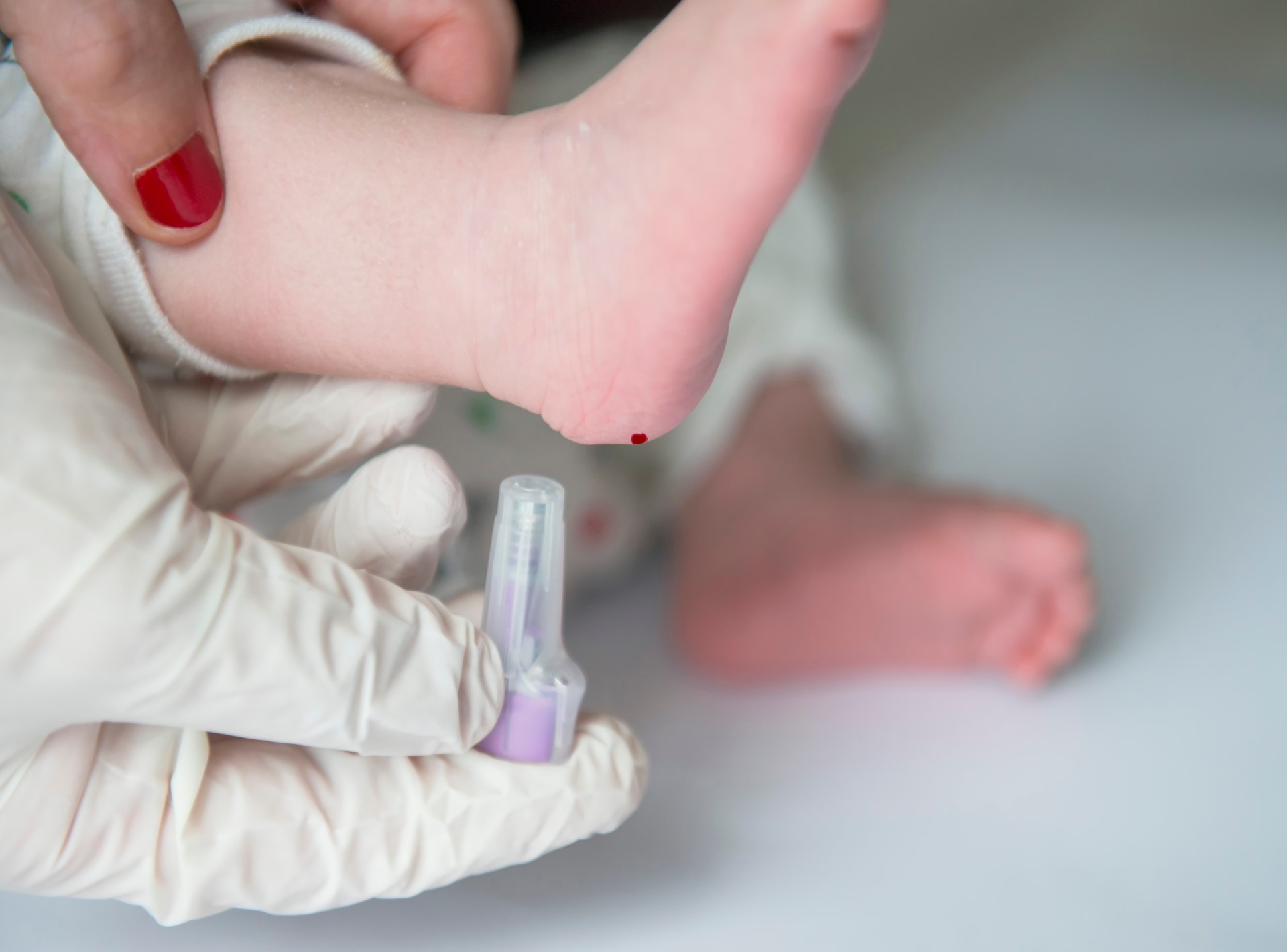Severe combined immunodeficiency disorder (SCID) has become the first immunological disorder to be screened for through WA’s Newborn Bloodspot Screening Program (NBS).
Advances in technology have made it possible to include screening for SCID as part of WA’s newborn heel prick test, paving the way for early detection and treatment for this genetic condition and bringing WA in line with the US.
Infants with SCID, which is caused by gene mutations which affect the development and function of immune cells, appear healthy at birth but typically present with severe or persistent infections, often between the ages of one to two years, but sometimes younger.
With early detection, SCID can be effectively treated with antimicrobial therapies and a bone marrow or stem cell transplant, whereas those diagnosed at older ages have poorer outcomes, including severe disability or even death.
While SCID is rare, it is anticipated that three or four babies a year will be diagnosed thanks to its inclusion in the newborn heel prick test.
“Including this rare immunological disorder in WA’s newborn heel prick test will be life-changing for those affected newborns and their families,” WA Health Minister Ms Amber-Jade Sanderson said.
“Newborn screening programs like ours are vital, giving babies with rare conditions the chance to receive treatment earlier than they otherwise would.”
The NBS program, overseen by PathWest, has provided voluntary screening to all babies born in WA for more than 50 years, testing around 33,000 infants annually for 27 serious but treatable major conditions, with some 50 to 60 babies a year benefiting from early specialist treatment.
The SCID newborn screening test, originally developed at NIH, measures T cell receptor excision circles (TRECs), a byproduct of T-cell development, and because infants with SCID have few or no T cells, the absence of TRECs may indicate SCID.
More than 80% of infants diagnosed with SCID do not have a family history of the condition.
SCID is usually fatal within the first year or two of life, unless infants receive immune-restoring treatments, such as transplants of blood-forming stem cells from a sibling who is a close tissue match, gene therapy or enzyme therapy.
An analysis of data from 240 infants with SCID found that those who received transplants before the age of 3.5 months were most likely to survive, regardless of the type of stem cell donor used, but often with only partially restored immunity.
In other WA news, the government’s ‘Free Jab May and June’ has seen more than 890,000 West Australians vaccinated against flu.
As of 25 June 2023, 10,743 influenza cases had been reported to WA Health, with 39% of cases among children younger than 12 – 445 children under nine have been hospitalised with influenza in WA this year compared with 97 children under nine for the same period last year.


